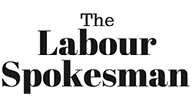Choose a plan to become a member of the
St. Kitts-Nevis Trades & Labour Union
Choose a plan from below, subscribe, and get access to our member benefits!
Monthly plan
Yearly plan
Member Benefits Include
- Collective Representation
- Legal Representation
- Grievance Resolution
- Professional Development
- Health and Safety Advocacy
- Social and Networking Events
- Governmental Advocacy
- Job Security and Seniority Advocacy
- Information and Resources
- Open Door Policy
- Workers Representation on a National Scale
Collective Bargaining Representation
The union negotiates collective bargaining agreements on behalf of its members to ensure fair wages, benefits, and working conditions. Shop stewards act as liaisons between the workers and the union leadership.
Legal Representation
Members have access to legal assistance for workplace-related issues, such as unfair dismissal, discrimination, and safety violations.
Grievance Resolution
The SKNT&LU supports members in resolving workplace grievances, advocating for fair treatment and due process.
Professional Development
The union provides opportunities for members to enhance their skills and career prospects through various educational programs.
Health and Safety Advocacy
A key focus is on promoting safer work environments and compliance with health and safety standards.
Social and Networking Events
Members can participate in events that foster community and provide networking opportunities.
Governmental Advocacy
The union lobbies for policies and legislation that protect and advance workers' rights and interests.
Job Security and Seniority Advocacy
Efforts are made to ensure fair practices regarding layoffs, promotions, and other job changes, often prioritizing seniority and performance.
Information and Resources
The union keeps members informed about labor rights, industry developments, and union activities through various communication channels.
Open Door Policy
Members have direct access to union representatives for guidance and support, with non-members also encouraged to engage with the union.
Workers Representation on a National Scale
The SKNT&LU represents workers at the national level on various committees, influencing policies and regulations affecting labor and employment.
Search for an article
Subscribe
To get email updates from The Labour Spokesman.


